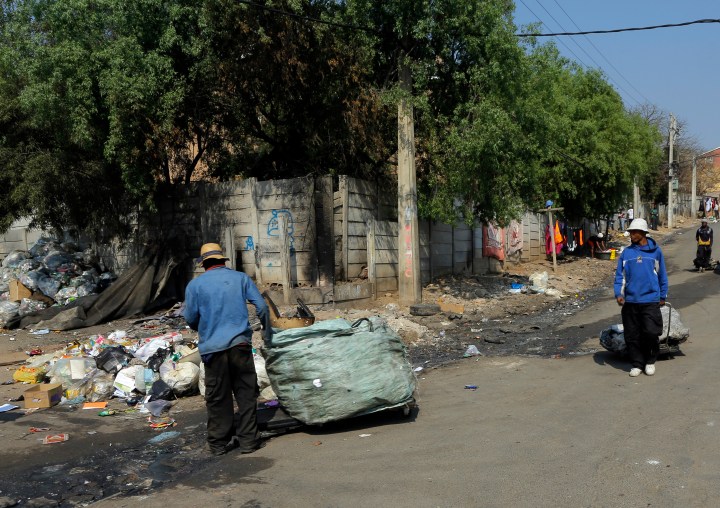Post-lockdown
South Africa’s poorest workers are more likely to lose jobs, says data report

South Africans who aren’t providing essential services and can’t work from home are more at risk of losing their jobs than others once the lockdown is lifted.
Data research shows that 63% of South Africa’s workforce is neither essential nor able to work from home, and these are the workers who are most at risk of losing their jobs once the lockdown is lifted.
The research report was conducted by Andrew Kerr, the chief research officer at the UCT data research unit Data First, and Amy Thornton, a researcher at the Development Policy Research Unit.
South Africa’s lockdown has restricted movement and affected how businesses and employees operate in order to contain the spread of Covid-19. Businesses have had to close down or operate remotely.
While the lockdown has forced employees to work from home, this is an option only available to 13.8% of the working population. This would be about two million people working from home, out of a total population of about 16 million working people in the country.
“Those who could work at home are all in more highly skilled occupations who undertake tasks as part of their jobs that could be done at home,” reads the report.
Among the highly skilled workers, Kerr and Thornton estimate that 65% of senior managers and 56% of professionals could work from home.
But low-skilled workers are unable to work from home as their work often requires them to be in the workplace. Low-skilled workers range from informal traders, domestic workers to cleaning staff.
Kerr and Thornton predict that the most severe job losses are likely to be concentrated among the 63% of workers who aren’t essential and can’t work from home. This is about 10.5 million workers.
“In the bottom half of the earnings distribution, only 28% of workers are either essential or could work from home. In contrast, 61% of workers in the top 10% of the earnings distribution could work at home or are considered essential, meaning that low earnings workers face much higher probabilities of job loss,” reads the report.
These numbers are worrying as this will only deepen South Africa’s unemployment figure, which is currently 29%.
Statistics SA stopped in-person fieldwork, so actual job losses will be difficult to estimate until these surveys resume, according to the report. Instead, Kerr and Thornton used the Statistics SA’s Quarterly Labour Force Surveys and Post-Apartheid Labour Market Series (Palms) version of the Quarterly Labour Force Survey to estimate how many job losses would occur because of the lockdown.
Kerr and Thornton used the surveys to classify which jobs can and cannot be done at home. The classification used comes from a recent paper from the University of Chicago researchers, where: “The [University of Chicago] authors classified occupations as feasible to work from home or not based on their occupational context and activities using data from the Occupational Information Network (O*NET), a detailed occupational survey collated by the US Bureau of Labour Statistics.”
The ability to work from home depends on how much the job requires working outdoors, operating vehicles, or using mechanised equipment.
Kerr and Thornton then adjusted the classification to fit the South African context.
Multiple industries have been hit hard by the lockdown and are seeking alternative ways to pay their staff and other expenses.
The Book Lounge, which has closed because it is not an essential service has asked customers to buy book vouchers which can be used once the lockdown has been lifted or to send donations so that they can pay staff salaries and operational costs. The Labia Theatre has made a similar request.
The government has set aside R40-billion to assist businesses that are unable to pay their employees’ salaries. DM
"Information pertaining to Covid-19, vaccines, how to control the spread of the virus and potential treatments is ever-changing. Under the South African Disaster Management Act Regulation 11(5)(c) it is prohibited to publish information through any medium with the intention to deceive people on government measures to address COVID-19. We are therefore disabling the comment section on this article in order to protect both the commenting member and ourselves from potential liability. Should you have additional information that you think we should know, please email [email protected]"
















